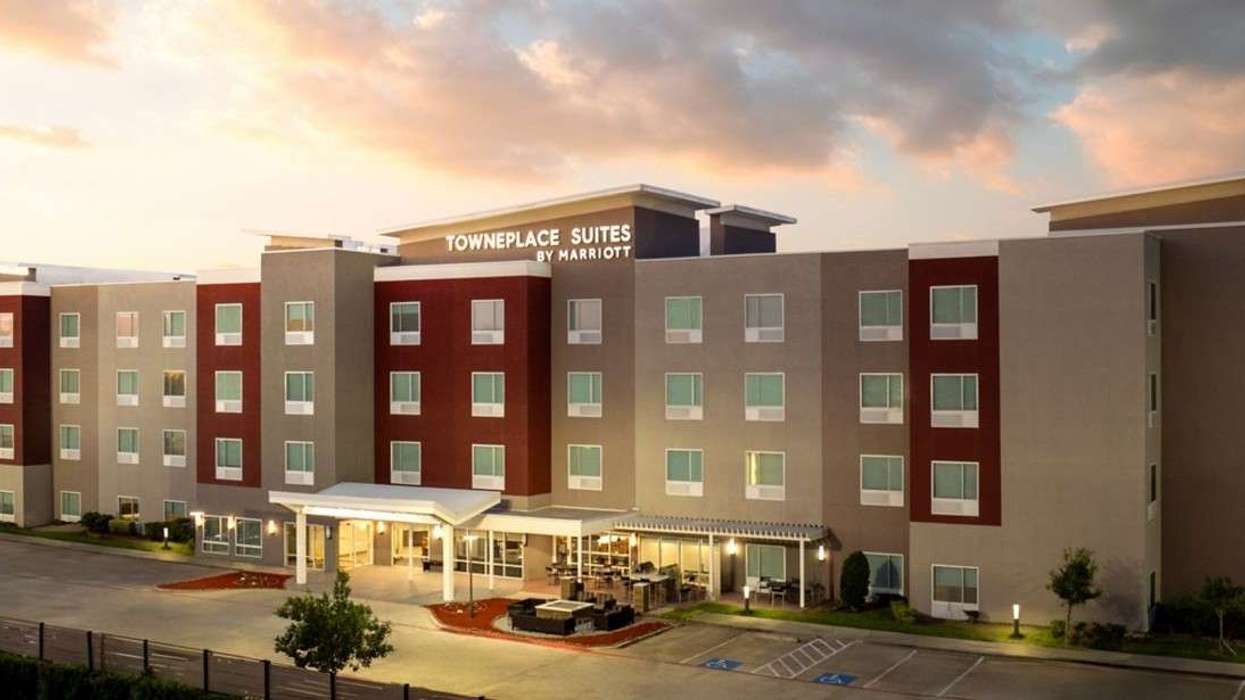THE OLD RADISSON Hotel in the Franklin Gateway corridor of Marietta, Georgia, is easy to overlook, sitting as it does somewhat off the major road. A strong metal gate with black screening surrounds the property now with federal marshals guarding the entrance.
Despite the subdued exterior, the building is now at the center of the biggest drama to sweep the small city north of Atlanta, and the nation as a whole; the COVID-19 pandemic. The 218-room former 3-star hotel now houses patients who have tested positive for the coronavirus that causes COVID-19 but who do not yet need medical treatment, according to the Marietta Daily Journal.
“My understanding is that it will house patients that need to be separated, but not hospitalized,” Mayor Steve Tumlin told the newspaper.
Locally based Apsilon Hotels LLC, founded in 1984 by Ashwin Patel and currently led by CEO Raj Patel, owns the building. They did not return a call for comment in time for this article.
‘One opportunity’
U.S. Health and Human Services is the agency that secured the hotel, but similar occupations are taking place in different states under the authority of various agencies, including local health departments and the military.
“One opportunity that has arisen in the wake of the COVID-19 crisis is the potential utilization of hotels and motels as sites for coronavirus patient care or quarantine zones. It is also possible that a government entity may order you to turn over your hotel to them,” AAHOA said in a guidance document on its website. “While these possibilities are in their early stages of development, there are several things to keep in mind if you are interested in pursuing or approached to consider this unique lodging arrangement.”
The first step for hotel owners approached by a government agency to surrender their property for this use is to consult an attorney and contact their insurance company to get, in writing, assurance that they are covered.
Franchisees should determine whether third-party leases are allowed and whether they will still be required to pay brand fees. The part of a hotel being used for quarantine should be closed to the public and all employees should be made aware of the situation and be allowed to stay home if they choose.
“Don’t undertake any responsibility for observing and monitoring guests,” the AAHOA document said. “Comply with all protocols established by all government agencies, including sanitizing protocols for disinfecting all areas after housing the affected individuals.”
Determine who would pay for damage to the property and whether the use will affect any loans on the property. Then there’s booking, utilities and suppliers to consider.
“Any agreement related to a housing arrangement with a government entity should be carefully examined by your attorney,” AAHOA said.
Doing community service
Jyoti Sarolia, principal and managing member of Ellis Hospitality Group in Temecula, California, supports the state’s decision to convert hotels to house coronavirus positive people and the homeless. The same has been done in other parts of the world, she said.
“Hotels are an important role within in a community. Our hotels welcome visitors and host meeting spots, so why not become a temporary hospital when we have a shortage of hospital beds,” she said. “I am not expecting our team members to be medical professionals, but we offer those rooms for those in need. We must all help where we can while trying to maintain our livelihood.”
Miraj Patel, president of Wayside Investment Group in Houston, said state health departments have been approaching hotel owners about taking over their properties for isolation.
“They will take over your whole hotel for the next 90 days,” Patel said. “It’s a win-win. In many states the health department will even clean your hotel. Basically, you’re just going to be on autopilot.”
At the same time, he also has several concerns about letting his hotels be used for isolation units.
“I have standards. We have brand standards, and then we have our company standards of how we want to be clean,” Patel said. “If we have a third party coming in and cleaning, number one, we have to lay off our housekeeping staff. Then I’ll have to train all my employees all over again when this is all over.”
And then there’s the question of how it would affect future visits, he said.
“After four months down the line, when everything is OK, are people are going to feel like ‘Hey, this is one of those quarantine hotels and I’m not sure I want to stay there,’ Patel said. “It could scare away future guests.”
Patel recently opened a 66-room Red Roof PLUS+ in Galveston, Texas, that has suffered from unexpectedly low occupancy as a result of the COVID-19 pandemic’s dampening of travel.
Housing the helpers
Oyo Hotels and Homes announced on March 24 that all of its hotels will offer free stays to medical workers who are traveling to fight the virus.
“All of us at OYO are grateful for the bravery and sacrifices all the medical personnel are making to save lives and stop the spread of Covid-19,” said Ritesh Agarwal, founder and group CEO for OYO. “Our hearts go out to all those impacted by this terrible illness.”
Reservations can be made at 628-213-7020 with the code OYO4FIRSTRESPONDERS.





